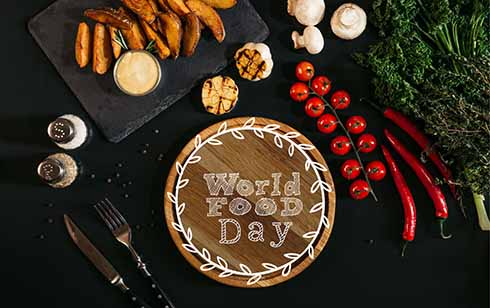 The twin events of Anti-Poverty Week and World Food Day invite us to imagine the reality of poverty. Hunger eats at our spirits as well as at our bodies.
The twin events of Anti-Poverty Week and World Food Day invite us to imagine the reality of poverty. Hunger eats at our spirits as well as at our bodies.
In one of the central stories in the Gospels Jesus feeds thousands of people with a couple of bread rolls and fish. The people are hungry; they have a long distance to go; the sun is beginning to set. Listening to the story we can feel the pangs of hunger and of dismay we have known in similar situations. Then Jesus tells his disciples to do the impossible and to feed them, and as they distribute their slim rations they not only satisfy people’s hunger, but they are left with bucket loads of food left over. From famine to feast.
The story reminds us how important food is. Hunger eats at our spirits as well as at our bodies. To grow and to live well as human beings we need to have enough to eat. To provide for our families and to allow our children to grow into healthy, confident and enquiring adults we need to provide enough food to sustain them. If we cannot feed the people who rely on us we are likely to lose spirit and to blame ourselves for failing in our most basic responsibilities.
JESUS MAKES A LITTLE GO A LONG WAY
In the Gospel story Jesus makes a little food stretch for miles. But equally important is his disciples’ trust in him that makes them distribute food they did not think they had. They have a go, they trust in Jesus’ word, and the bread and fish refuse to run out. Where it seemed that they had nothing and that nothing could be done, something was found, multiplied and shared.
This story lights up the twin events this week: Anti-Poverty Week and World Food Day. They invite us to imagine the reality of poverty. It lies in not knowing where the next meal is coming from and indeed not knowing whether there will be a next meal. That uncertainty breeds anxiety, and stilts growth in hopes and relationships. Poverty is the breeding ground for lost possibilities and inner disturbance.
The days also remind us that there is so much food available in the world, so much food wasted, so much food consumed out of addiction, not of hunger. All that we lack as a race is the willingness to make food available to people who need it. The obstacles to build this capacity have less to do with technology than with human relationships. If we want to make food available to those who are hungry we have the means to do it if we make it a priority. But priorities are established only through agreement between human beings. And there lies the problem
SOCIETY'S CHALLENGE IS LIFT ALL OUT OF POVERTY
Our challenge, however, is to go beyond simply feeding people to lifting them out of poverty. Then, instead of relying on others to put bread on the table they will be able to work for their bread, to house their families decently and contribute to their community.
This requires the change in society. A good society is one in which the making of wealth is not the sole goal of economic life, but is directed at nurturing all human beings, and especially the most deprived. In modern life, as in the Gospel story, bread is a gift that we are invited to share.